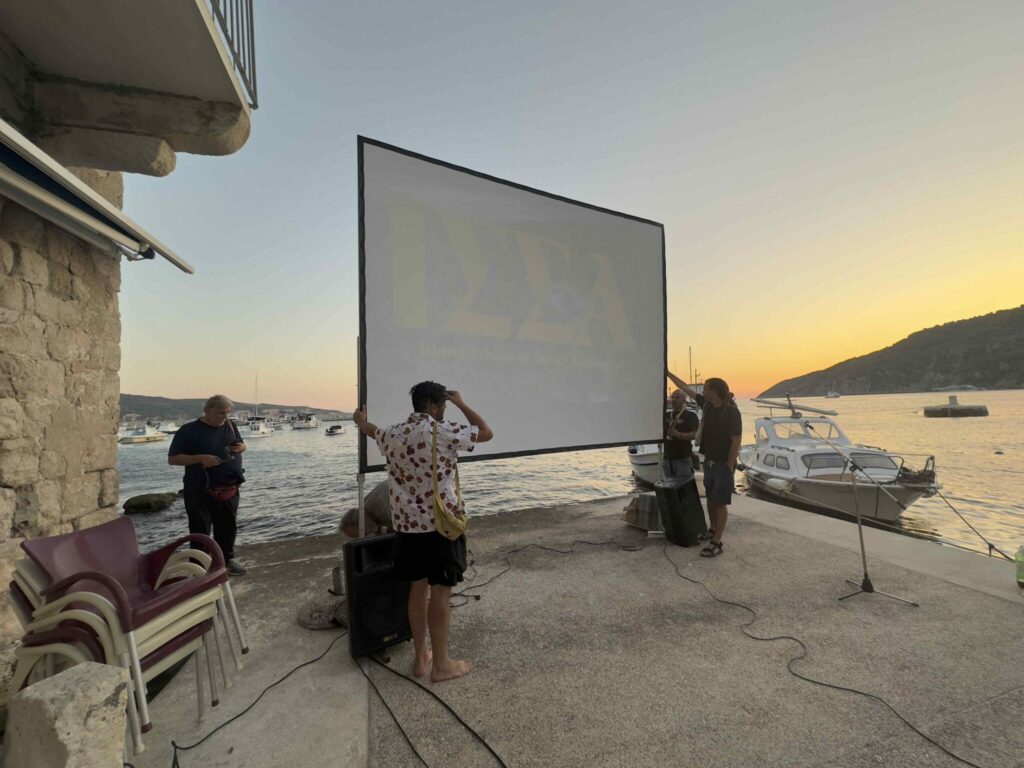Article that mentions ISSA by Brian Sholis, writer and editor based in Toronto, published in the Frontier Magazine under the title “Way Out There – and Everywhere”

I’m always seeking examples of self-organized and non-accredited educational initiatives. Two recent initiatives have caught my eye, both independently and for how their core ideas simultaneously align and diverge.
Last weekend, on Vis, a small Croatian island in the Adriatic Sea, Italian philosopher Franco Berardi helped inaugurate the Island School of Social Autonomy with a lecture titled “How Will We Live?” I’ve been following along as the school’s co-founders painstakingly renovate an old stone house in the hills above Komiža and reading with interest as they publish essays that cite many of the culture and education critics I most admire. I’m also intrigued because its list of cofounders includes not only philosophers, theorists, artists, and poets, but also actor-activists like Gael García Bernal and Pamela Anderson. That kind of support—both in visibility and funding—can give experiments like this one the momentum it needs to stay afloat.
The founders make the distinction between education and learning, noting, correctly, that learning mostly happens outside the formal institutions we have for education—and that the kinds of things taught in school may not serve us well for an “age of extinction.” So the ISSA should be “a place that imagines, experiments with, and cultivates forms of knowledge production and sharing that go beyond traditional notions of education and its purpose.” Its principles include “no curriculum,” “no quantification,” “play,” “hospitality,” and, “Pomalo!”
On Vis, that last term, they suggest, “is both a greeting meaning ‘take it slow’ and an island philosophy of how things can get properly done or how to react in utter crisis.” They’ve chosen to locate the project on the island in part for that attitude, how it refuses the orthodoxy “time is money,” and for the island’s antifascist and other histories. “Similar to ISSA itself, the island of Vis embodies an essential dialectic relationship between autonomy and dependency, nature and society, local and global. For ISSA, it is not an either-or situation.”
And what about that goal, social autonomy? “We perceive social autonomy as the ability of individuals to function as cooperative group members, engaging in communal self-governance while being aware of the interconnectedness and interdependence of communities within broader networks (or archipelagoes) of human and non-human life-organization.”
ISSA (..) is a model of rigor and camaraderie, a beacon shining from the (quite literal) hills.”
